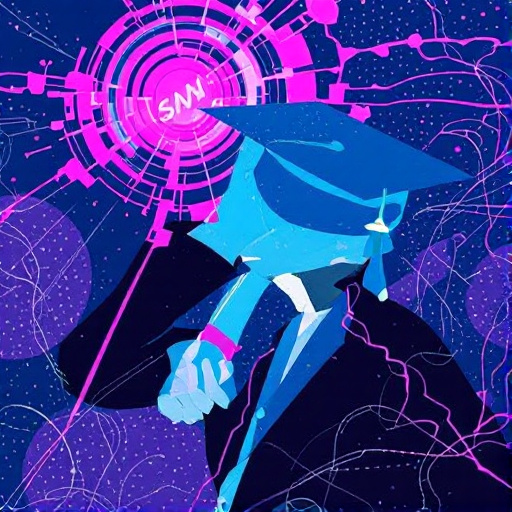Featured Articles
- 9 Hidden Financial Aid Opportunities Every College Applicant Should Explore Before Applying
- From Drones to Diversity: The Surprising Role of Tech in Shaping Modern College Admissions Strategies
- How Midnight Email Strategy and Timing Secretly Influence College Acceptance Odds More Than You Think
- "Micro-Majors: The Rise of Niche Fields and Their Impact on College Admissions Trends"
- The Impact of AI-Generated Essays on Authenticity in College Admissions: A New Frontier or a Recipe for Disaster?
"Micro-Majors: The Rise of Niche Fields and Their Impact on College Admissions Trends"
"Micro-Majors: The Rise of Niche Fields and Their Impact on College Admissions Trends"
The emergence of micro-majors, specialized fields of study carving out niche academic pathways, is reshaping college admission landscapes. By embracing these micro-majors, students not only bolster their employability in targeted industries but also enhance their application appeal amid fierce competition.
The Allure of Micro-Majors
So, what exactly are micro-majors? Essentially, these are condensed and focused academic programs that provide students with the opportunity to dive deep into specific interests without the breadth of a traditional major. For instance, think of "Sustainable Fashion," "Data Science for the Humanities," or "Social Media Marketing." Think of them as the artisanal cheeses of higher education—creating students who are distinct and uniquely qualified in their areas.
Statistical Surge
Since 2015, there has been a 78% increase in universities offering micro-majors, according to a study published in the *Journal of Higher Education*. This reflects a growing demand for specialized knowledge that aligns with evolving workforce needs, allowing universities to attract prospective students who seek relevant skills and expertise.
Persuasive Powers: Why Choose a Micro-Major?
Why should students consider micro-majors? For starters, they align well with the modern employer's desire for niche expertise. According to the National Association of Colleges and Employers (NACE), 83% of employers prefer candidates with specific skill sets that micro-majors often provide. This trend is not just limited to tech or science; fields like digital humanities are rapidly expanding, blending artistry with analytical thinking to create diversified career paths.
The Traditional vs. Micro-Major Debate
Traditional majors often follow a broad curriculum that can leave graduates feeling underprepared for the practical challenges of their industries. In contrast, micro-majors stack relevant courses to equip students with in-demand skills. A friend of mine, Sarah, graduated with a bachelor’s degree in International Relations, and while she loved her time at university, she struggled to find a job directly related to her studies. Had she opted for a micro-major in Global Digital Marketing, her story might have been different. Many students, like Sarah, find themselves seeking supplemental skills only after graduation.
Impact on College Admissions Trends
The rise of micro-majors is also influencing how colleges evaluate applicants. Universities are increasingly looking for students who demonstrate passion and initiative in their areas of interest. A unique micro-major can differentiate a student’s application among a sea of traditional degrees. Colleges are realizing that a diverse student body comprising various niche skills can enhance campus diversity and discussions around evolving themes in a globalized world.
Storytelling Through Micro-Majors
Picture this: a high school student named Jake had always been fascinated by brewing. Instead of pursuing a wider major in Food Science, he opted for a micro-major in Craft Brewing. His choice not only set him apart from other applicants but also allowed him to participate in internships with local breweries, putting him ahead in job applications after graduation. Jake’s choice reflects a narrative shift—high schoolers today are crafting their stories in ways previous generations could only dream of.
Casual Observations
Let’s face it; traditional majors can sometimes feel like a never-ending treadmill. You’re running, but where are you headed? It’s like ordering a buffet when all you want is that luscious slice of chocolate cake. Micro-majors offer a slice of cake that is not only scrummy but also garnished with education that truly satisfies your professional hunger.
Case Study: The University of Southern California
Take the University of Southern California (USC) as a prime example. They introduced micro-majors focusing on tech-enabled creativity, such as "Design for AR/VR" and "Gamification in eLearning." These programs have seen enrollment double year-on-year, demonstrating a clear interest among students to become experts in burgeoning sectors. Their success stories are not just numbers; they represent students forging their paths in the world.
Challenges Ahead
While micro-majors provide tailored expertise, they are not without challenges. The narrow focus may restrict students who later desire to pivot into broader industrial roles. Universities are grappling with how to provide flexible credit options that support students wishing to switch paths. Administrators are facing the reality that a financial investment in micro-majors needs to balance overall program viability and student experience to prove beneficial.
Humor in Education
Ever think about getting a micro-major in "Cat Cuddling" or "Netflix Binge-Watching"? While we're joking about that, the fact remains that educational institutions recognize the importance of engaging students in topics that resonate with their passions and professions. Let’s hope we don’t start seeing a micro-major in Competitive Meme Making anytime soon—unless, of course, it's a serious career path in some tech-savvy niche!
Conclusion: The Future is Micro-Majors
As we tiptoe into the future of education, micro-majors are set to change the game significantly. Students now have greater agency over their educational paths, making choices that align with personal interests and market demands. With college admissions evolving toward appreciating diverse skills and tailored experiences, it’s clear that the micro-major trend is here to stay. As students increasingly embrace these specialized programs, it promises to create a workforce rich in skill and diversity—perfectly poised to meet the challenges of tomorrow.
Takeaway
Whether you’re a high school student contemplating your future or an adult pondering a career shift, consider the possibilities of micro-majors. It could very well be the gourmet approach to education you need, transforming your passion into a profession suited for the 21st century. The time is ripe to get niche like a cheese aficionado! After all, in a world full of generic knowledge, why not become the expert in your color of cheese?




